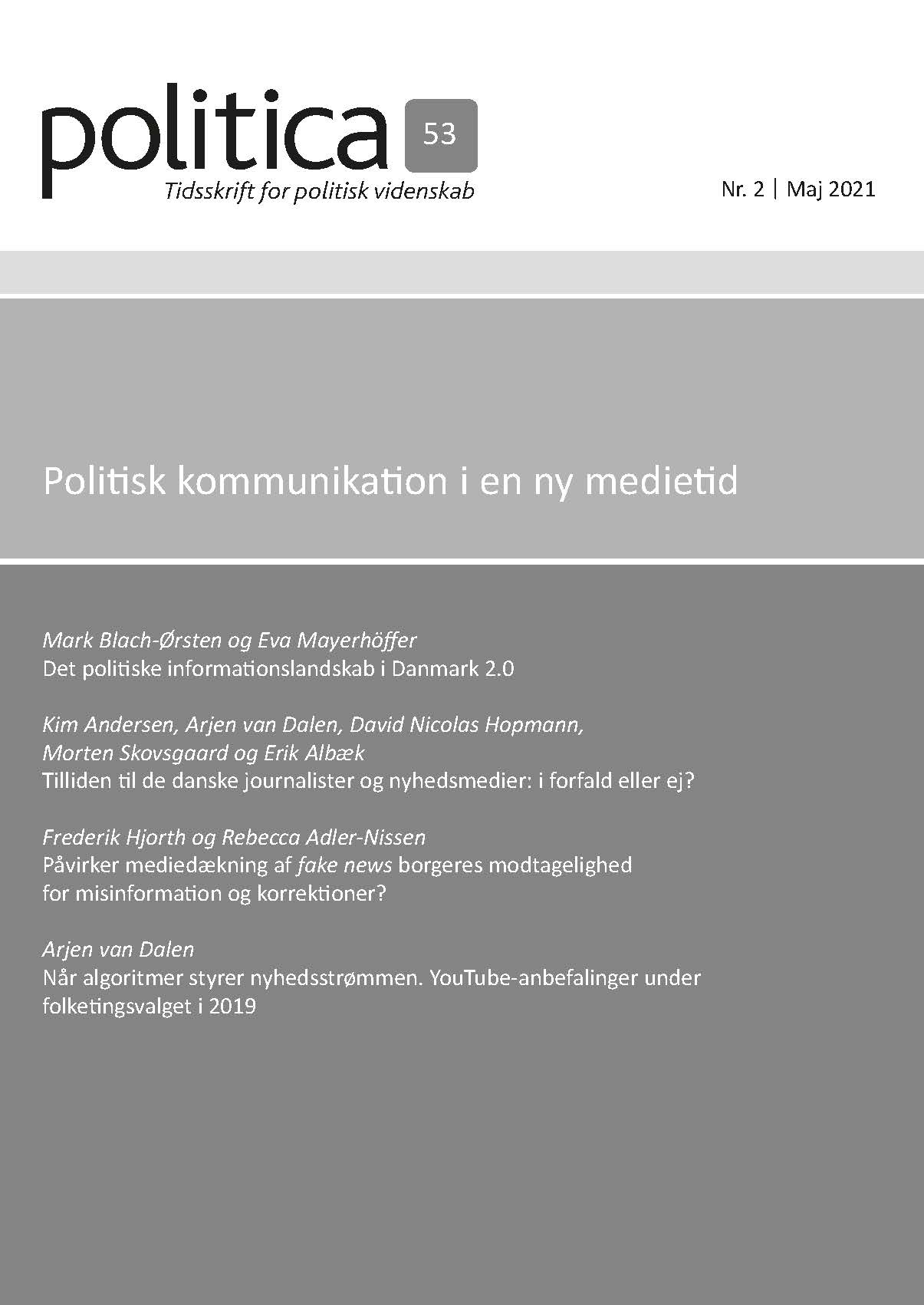Does media coverage of fake news affect citizens’ reactions to misinformation and its correction?
DOI:
https://doi.org/10.7146/politica.v53i2.130388Nøgleord:
misinformation, fake news, experiments, media trustResumé
During the 2016 US presidential election campaign, interest in fake news surged among political elites, media, and mass publics. This raises the question of how general awareness of fake news affects information processing by citizens. We address this deficit by theorizing about the consequences of awareness of fake news for receptivity to misinformation. We hypothesize that individuals induced to be more aware of fake news will be less likely to update beliefs and attitudes in response to information from news media. We test this theoretical expectation in a pre-registered experiment in cooperation with a national news magazine in Denmark. Results suggest that contrary to the hypothesis, primed and unprimed respondents react similarly. In both groups, misinformation affects approval of a fictional politician in the predicted direction, and a subsequent correction fully cancels out the initial effect of misinformation. The results suggest that the risk of fake news fatigue is limited and media outlets can discuss the phenomenon of fake news in general as well as present concrete factual corrections with little risk of engendering additional media skepticism.
Publiceret
Citation/Eksport
Nummer
Sektion
Licens
LicensOphavsretten tilhører Politica. Materialet må ikke bruges eller distribueres i kommercielt øjemed.





